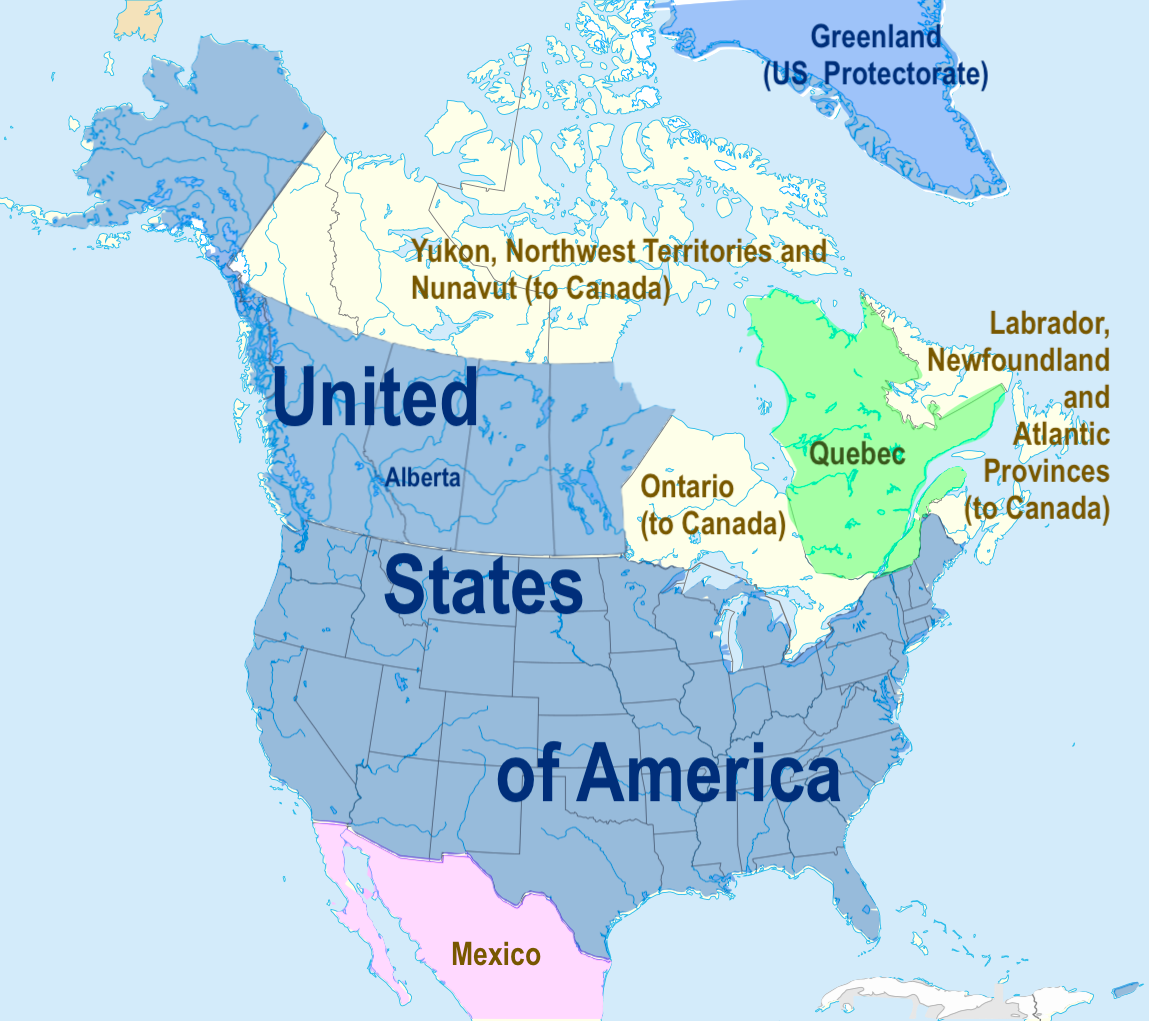|
Today's Opinions, Tomorrow's Reality
Ugly Canadians By David G. Young Washington DC, May 27, 2025 -- Alberta's secessionist movement risks turning a Trump insult into a divisive reality. When King Charles III presided over the opening of the Canadian parliament today, the royal presence as Canada's official head of state was a not-so-subtle response to another would-be king to the south: Donald Trump. The American president has repeatedly threatened to make the sprawling nation America's 51st state, a comment he repeated to the annoyance of Prime Minister Mark Carney to the a White House during his visit three weeks ago.1 Such insulting statements might be dismissed as typical Trump bullying except for the fact that they inflame existing tensions that are already tearing North America apart. The biggest flashpoint in these tensions is currently in the Canadian province of Alberta. The province has seen an economic boom in the past two decades after technology made it possible to extract huge amounts of oil and natural gas from the tar sands. the petroleum boom has created tensions with Liberal governments 2000 miles east in Ottawa. Many Albertans believe that environmental regulations and taxation are holding the province back. Some more extreme members of the secessionist movement support Alberta joining the United States.2
The Province's right-wing Premier Danielle Smith has led efforts to block federal authority over the province and make it easier for secessionists to collect signatures for a referendum on secession.3 The victory of another Liberal government in this year's national elections has heightened the sense of urgency of Albertan separatists, an attitude that is shared to a lesser extent by neighbors in the Western provinces of Saskatchewan, Manitoba and British Colombia. Of Canada's four Western provinces, only British Columbia narrowly voted for the Liberals in the most recent national election, and this was only made possible by urban voters from Vancouver and the provincial capital in Victoria. Like Western American states, the Canadian interior is more politically conservative, and separatist feelings have long simmered across parts of British Colombia. The last time Canada faced a separatist crisis was 1995 when a secessionist referendum in French-speaking Quebec narrowly failed. That threat has never fully gone away -- it is just less acute today since Liberal governments, especially that of former Francophone Prime Minister Justin Trudeau, had the support of French-speaking Canadians. But the nationalist and populist tide that has swept across the globe in recent years has not spared Canada. While few Quebecois are enamored of Trump or Canada's conservatives, the same ugly nationalism that drives Trump's "51st state" bluster and Albertan anger also drives many Quebecois. In the most recent election, the separatist Bloc Quebecois Party won most French-speaking parliamentary districts outside Montreal. Should secessionism take hold in the Canadian West, don't be surprised if it also flares up in Quebec. And such tensions are not unique to Canada -- they exist in the United States, too. Tensions between coastal "blue states" and interior "red states" periodically leads coastal Americans to at least casually discuss a union with their more like-minded Canadian neighbors. Trump administration excesses and political polarization only fan the flames of Americans who think about "what if" scenarios should America's rising polarization degrade into violence. The good news is that any near-term threat posed by Alberta's secessionist movement probably won't come to pass. Even if a referendum happens and voters approve it, constitutional changes would be needed for Canada to allow the province to leave the federation, and this is unlikely to happen. And Premier Smith, while embracing MAGA rhetoric and supports many secessionist goals, says she is not in favor of the province leaving Canada. Yet politics is a funny thing, and it would be foolish to ignore the Albertan separatists. Few people thought that Brexit would actually happen, including UK Prime Minister David Cameron, who was forced to resign after the secessionists won despite his personal opposition. The thin majority who voted to leave will affect all Britons for many years to come. Whatever happens in Alberta, it would be a shame for it to accelerate the fragmentation of North America. While regional differences exist, Canada and the United States have far more in common than internal regions in many other countries in the world. A common culture and shared values give strength to Canada and the United States alike. This strength is enhanced by mutual respect and for more integration, not less. Related web columns: Remedial Civics, September 13, 2016 Dirty Habits, May 10, 2016 In Defense of Québec, October 18, 1999 Notes: 1. The Guardian, Trump says ‘We Just Want To be Friends’ as Canada PM Torpedoes 51st State Idea, May 6. 2025 2. The Telegraph, We Want to Live in America’s 51st state: The Canadians Pledging Their Loyalty to Trump, March 15, 2025 3. New York Times, Alberta Stands Apart in Canada. Now It Plans a Long-Shot Bid to Secede, May 22, 2025 |


